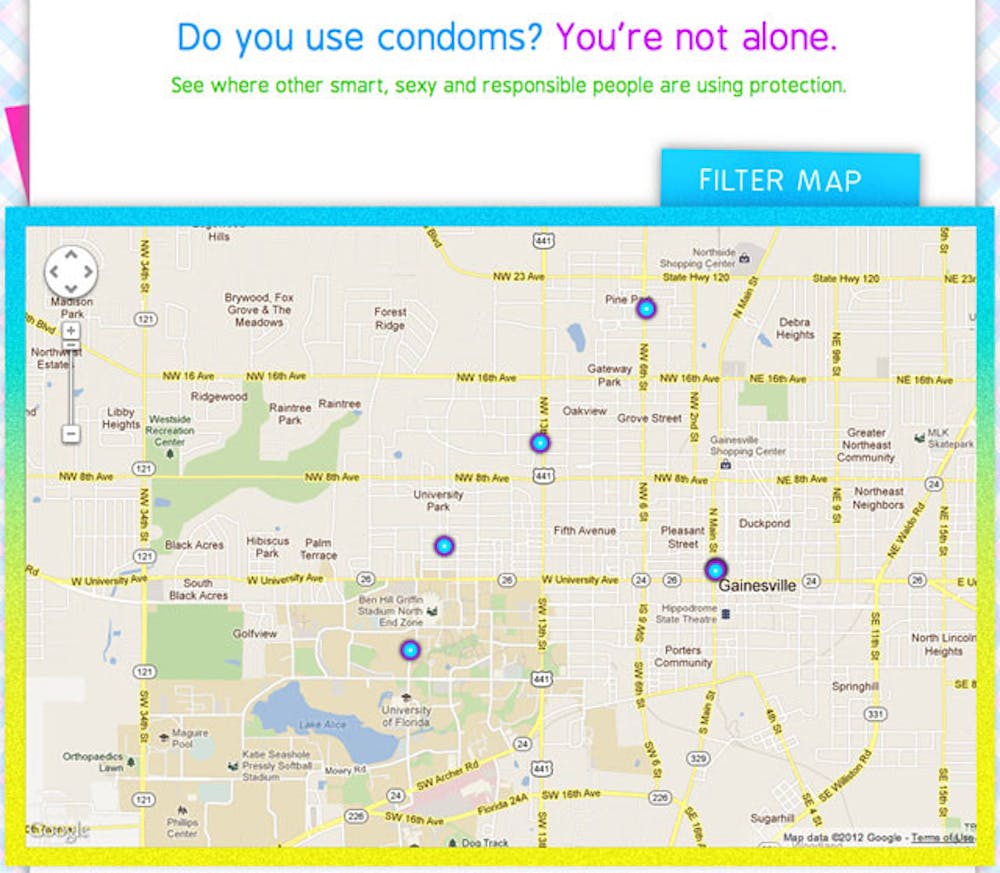For one couple, it felt as if mountains trembled and rainbows exploded. The sex was simply “ah-maz-ing.”
Young people in Gainesville are using a new website to publicize and rate their intimate encounters. Wheredidyouwearit.com, a Planned Parenthood project that promotes safe sex, lets them plot their escapades on a national map along with details about age, gender and relationship status.
“Twenty-somethings love social media, and we like to hear about each other’s sex lives,” said 21-year-old public relations senior Cayla Williams. “This website leverages that to promote safe sex.”
Planned Parenthood created the map in February to spread the message that condom use is normal and enjoyable. First pitched to college students in the Seattle area, it spread to Gainesville earlier this month. About a dozen dots on the map are now centered on UF.
Though condom use in Florida is slightly higher than the national average, roughly three out of 10 Florida teens didn’t wear a condom the last time they had sex, according to the Centers for Disease Control and Prevention.
Williams plans to boost awareness of the campaign on campus by distributing condoms labeled with QR codes, which allow students to “check in” to Planned Parenthood’s map using their smartphones.
The site doesn’t display exact addresses for the sake of “keeping your secret spot a secret,” but it pinpoints a nearby location.
Michael Fyalka, a 24-year-old advertising junior, discovered the website this week and said he’ll use it.
“I can imagine a lot of men would use this for bragging rights,” he said.
The creators of Where Did You Wear It initially worried users would abuse the site by posting vulgar content, said Kristen Glundberg-Prossor, a Planned Parenthood spokeswoman.
To sidestep the problem, they designed drop-down menus featuring colorful phrases for describing sex. For instance, those who have bad experiences can choose the option, “It could only get better… ”
Nevertheless, some Gainesville groups find the campaign offensive.
Father Roland Julien, of St. Patrick Catholic Church, said the map’s only benefit would be helping abstinent students avoid areas full of sexual promiscuity. Otherwise, he said, it’s simply visualizing a vice, like mapping out drug or alcohol abuse.
Glundberg-Prossor declined to comment on specific criticisms of the campaign. Instead, she emphasized that the overall response among college students has been positive.
“We need to tell our friends about this,” Williams said. “It’s time for them to wrap it up.”
The above map shows the safe-sex check-ins for the Gainesville area as of Thursday night.






